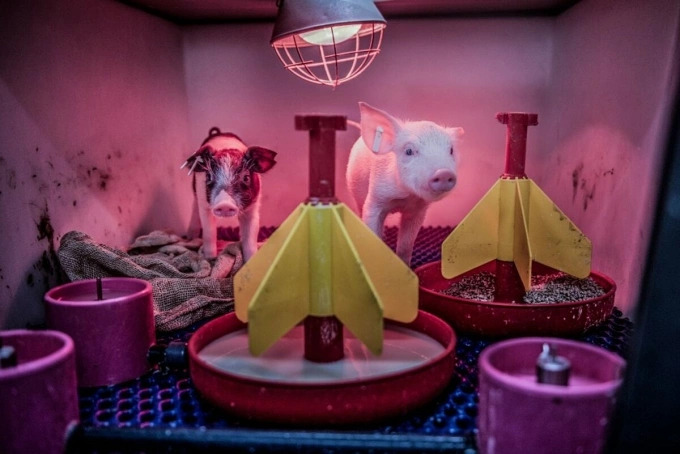The information, published in Nature Medicine on 25/8, offers new hope for addressing the global organ shortage.
The 39-year-old male patient was declared brain-dead after a cerebral hemorrhage. His family consented to the transplant of pig lungs modified with 6 gene edits. The donor pig was raised in a strictly sterile environment. The patient received multiple immunosuppressants to reduce the risk of infection and rejection.
Initially, the pig lungs functioned normally with no signs of rejection. However, after just one day, widespread swelling occurred throughout the body due to fluid buildup in the tissues, suspected to be caused by circulatory issues. Despite some improvement over the next few days, the body began to reject the organs. At the family's request, the experiment was stopped.
 |
Illustration of an organ transplant surgery. Photo: Cho Ray Hospital |
Researchers concluded that xenotransplantation of lungs from pigs to humans, while feasible, still faces significant challenges regarding rejection and infection. Further research is needed before clinical trials can proceed, the team said.
The need for organ transplants is currently extremely urgent. In the US in 2023, the waiting list for organ transplants was more than double the number of successful transplants - over 103,000 people waiting compared to 48,000 transplants performed. According to the Federal Health Resources and Services Administration, about 13 people die each day waiting for a transplant.
Previously, doctors have achieved limited success with genetically modified pig hearts and kidneys, and less success with livers. The most positive case currently is Tim Andrews in Massachusetts, who is living healthily with a genetically modified pig kidney transplanted at Massachusetts General Hospital in January.
Doctor Ankit Bharat, Chief of Thoracic Surgery at Northwestern University Feinberg School of Medicine, called the research interesting but doesn't believe pig lung transplants for humans will be feasible in the near future. He emphasized that lung transplants are much more complex than other organs like kidneys.
Lungs perform many vital functions, including filtering blood, regulating temperature, producing platelets, balancing pH, providing immune defense, metabolism, and endocrine functions. Unlike kidneys or hearts, lungs are directly exposed to the external environment through inhaled air, which contains viruses and bacteria. Due to their large size and being covered in immune-supporting proteins, even human lung transplants are difficult to prevent rejection.
Bharat expressed doubts about the conclusion of no immediate rejection after viewing the shared X-ray and CT images. He believes that for lung transplants, advancements in using human stem cells may be more promising than pig organ transplants.
 |
Genetically modified pigs at a farm in Bavaria, Germany. Photo: Technology Review |
Recent advances in cloning, gene editing, and infection control have helped some organizations achieve breakthroughs in transplanting other pig organs. These are all important steps that could lead to a future supply of replacement organs.
My Y (According to CNN)












